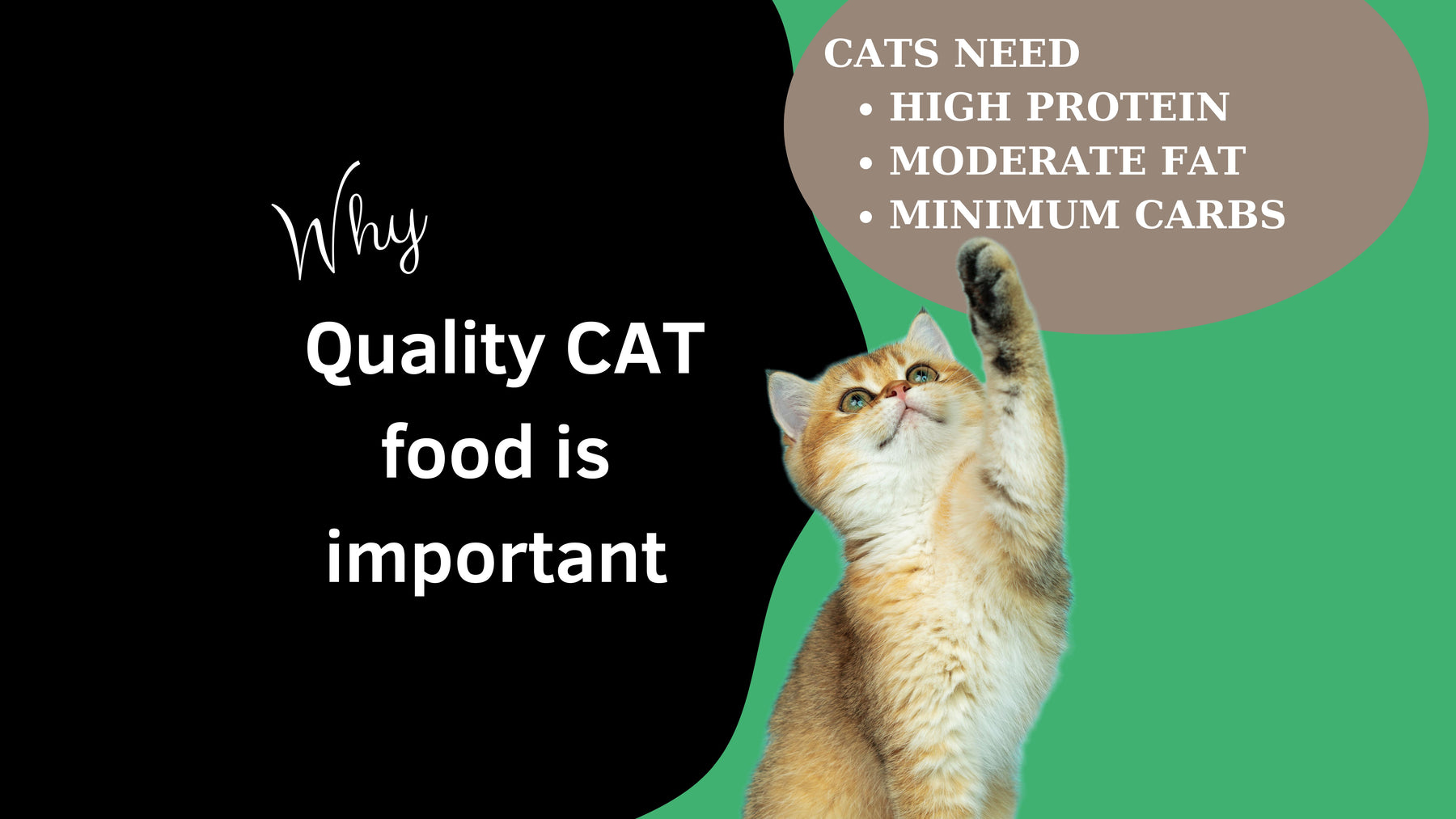
The Importance of a Good Diet for Your Cat's Health
As cat owners, we want our feline friends to live long, happy, and healthy lives. One of the most crucial factors in ensuring their well-being is their diet. A good, balanced diet can support proper development, prevent common health issues, and help your cat maintain a healthy weight.
1. Proper Growth and Development
Kittens, require a specially formulated diet to support their rapid growth and development during their first year of life. They need the right balance of proteins, fats, vitamins, and minerals to build strong muscles, bones, and organs. A low-quality or inappropriate diet can stunt their growth and make them more prone to developmental issues.
Adult cats, too, need proper nutrition to support muscle mass, keeps their immune system functioning well, and helps them stay active and healthy.
2. Preventing Obesity
One of the most common dietary-related issues in cats today is obesity. Overfeeding and feeding your cat the wrong type of food can cause them to gain weight. Obesity puts extra strain on your cat's joints, and organs, and increases their risk of developing serious conditions like diabetes, arthritis, and heart disease.
To help prevent obesity, it’s important to feed your cat the appropriate portion sizes based on their age, size, and activity level. High-quality cat food with the right balance of nutrients can help your cat maintain a healthy weight.
3. Supporting Kidney and Bladder Health
Cats are especially prone to kidney disease, which can develop due to dehydration or consuming foods that don't support kidney function. A high-quality wet food diet can help keep your cat hydrated, as wet food has a high water content, which is crucial for kidney health. Additionally, certain nutrients in premium cat food can help manage kidney function and prevent urinary tract problems.
4. Maintaining a Healthy Coat and Skin
A good diet can make a noticeable difference in your cat's coat and skin condition. Cats who receive a high-quality diet that includes essential fatty acids, like omega-3s, tend to have softer, shinier fur and healthier skin. Poor nutrition, on the other hand, can lead to dry, flaky skin, and hair loss, or cause an increase in shedding.
5. Preventing Digestive Issues
A well-balanced diet with the right fiber content is essential for maintaining good digestive health in cats. Cats who consume low-quality food with excessive fillers may suffer from gastrointestinal problems like constipation, diarrhea, or vomiting. A high-quality cat food made with easily digestible proteins and appropriate fiber levels can help keep your cat’s digestive system running smoothly.
6. Supporting Long-Term Health and Longevity
The right diet isn’t just about immediate benefits; it’s an investment in your cat’s long-term health. By providing the proper nutrients throughout their life, you help protect your cat from developing serious health conditions that can arise from poor nutrition. In particular, feeding your cat a high-quality diet rich in antioxidants, vitamins, and minerals can support their immune system and help them age gracefully.
How to Choose the Right Diet for Your Cat
Choosing the right diet for your cat can be overwhelming given the wide variety of options available. Here are some tips to help you make the best choice:
- Look for high-quality protein sources: Cats are obligate carnivores, meaning they need animal-based proteins to thrive. Look for foods that list meat, poultry, or fish as the first ingredient.
- Consider wet food for hydration: Wet food provides additional moisture, which can help prevent kidney problems and urinary tract issues. It's particularly beneficial for cats who don’t drink enough water.
- Avoid fillers and artificial additives: Low-quality cat foods often contain fillers like corn, wheat, and soy, which provide little nutritional value. Avoid food with artificial preservatives, colors, or flavors.
- Consult your veterinarian: Every cat is unique, and their dietary needs may vary depending on factors such as age, weight, activity level, and any underlying health conditions. Your vet can help you select the best food for your cat's specific needs.
Remember, when it comes to feeding your cat, quality matters more than quantity. Choose wisely, and your cat will thank you with purrs, snuggles, and years of companionship.
Kate xx

Leave a comment